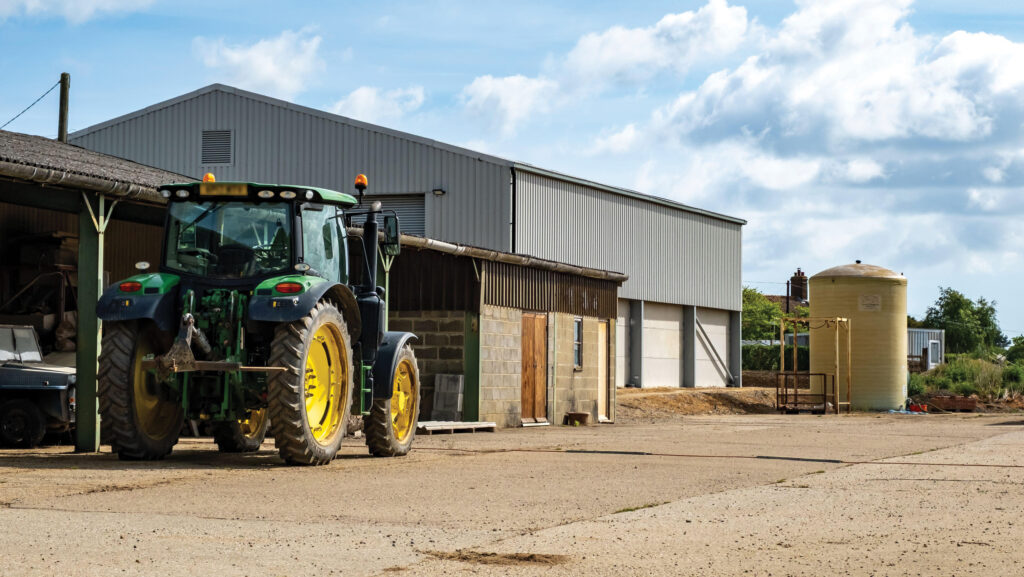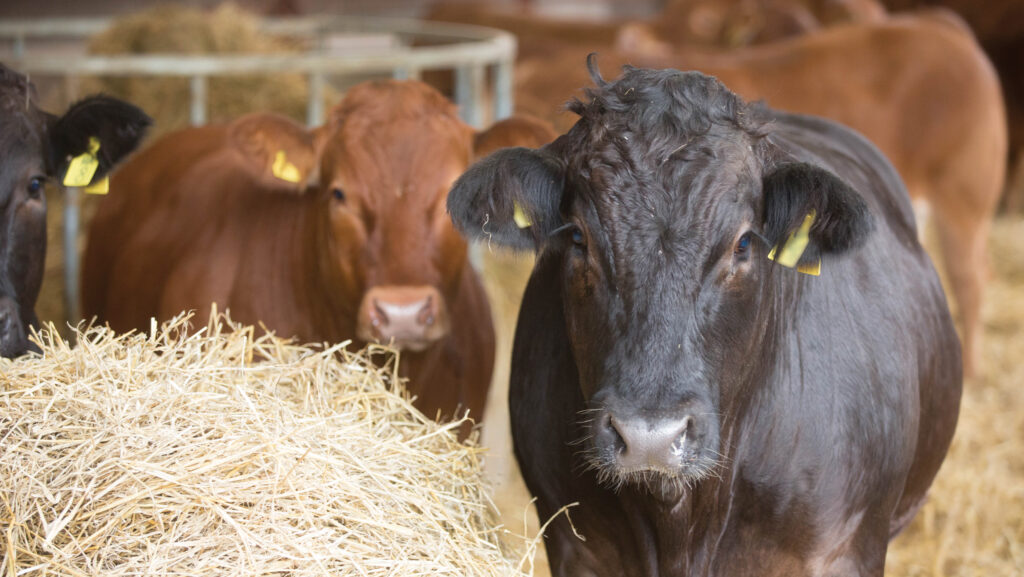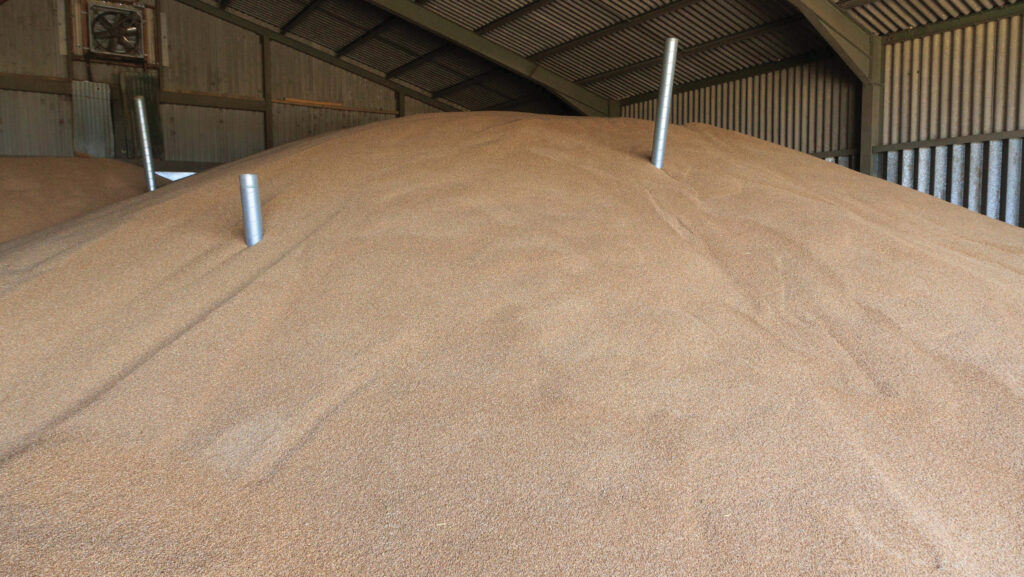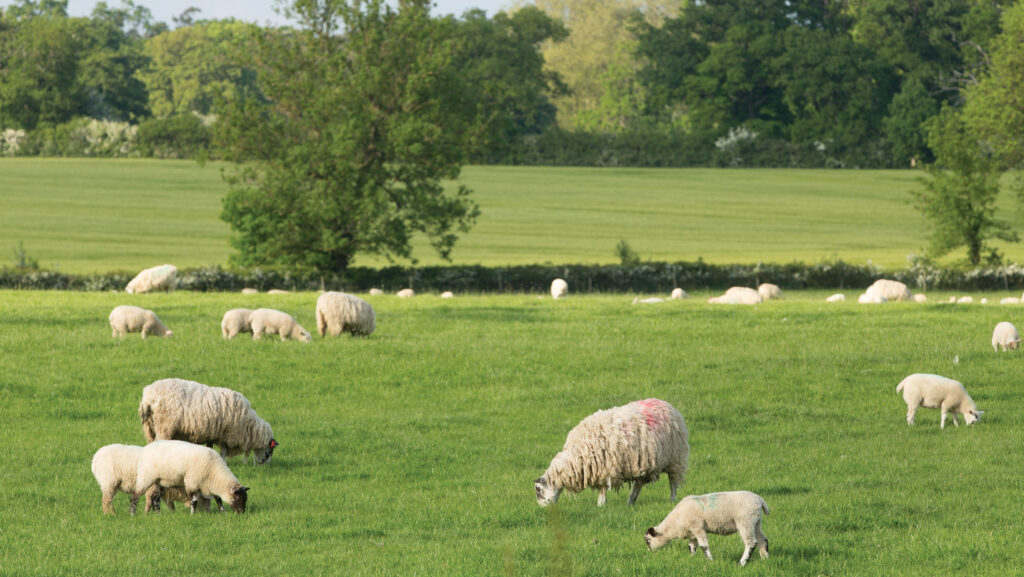IHT relief cut puts focus on correct valuations
 © Chris Yaxley/Alamy Stock Photo
© Chris Yaxley/Alamy Stock Photo The proposed cut in inheritance tax (IHT) relief means that there may be closer scrutiny of valuations for probate under the forthcoming regime.
Qualifying farmland, buildings and dwellings are currently eligible for 100% agricultural property relief (APR) on their “agricultural value”, while the value of live and deadstock is generally mopped up by business property relief (BPR) at 100%. This remains the case until April 2026.
See also: Budget highlights need for inheritance document housekeeping
“It is important to understand that IHT is a self-assessed tax where the taxpayer is looked to, to get it right,” points out Jeremy Moody, secretary and adviser to the Central Association of Agricultural Valuers (CAAV).

© Tim Scrivener
Market value
The value of assets for an IHT claim should be their market value at the date of death.
From April next year the limitation of full relief to a combined £1m of qualifying assets makes this far more significant.
The valuation of farming assets will usually call for the services of a professional valuer, with a solicitor applying for probate and submitting the IHT claim.
When HMRC investigates a claim by calling in the Valuations Office Agency (VOA), having a valuation by a professional qualified to do so helps to support the claim, although this is not a requirement.
Valuers of agricultural property, livestock and deadstock have qualified by taking CAAV or Royal Institution of Chartered Surveyors (Rics) examinations.
In practice, many are qualified under both banners and use the same principles to establish value.
“The important thing is that your valuer is qualified and has the skill, experience and appropriate professional liability cover,” says Jeremy.
“At present, HMRC asks for live- and deadstock to be reported on balance sheet values because they would get full relief, but from April, a lock, stock and barrel market valuation will be needed.”
Where balance sheet values are used – for example, with dairy herds – this could be just a third of market value, while crops and livestock are often valued in the accounts at deemed value, about 60-70% of market value.
IHT valuations – business and family preparation
- Whether a valuation is needed now or not, gather documents to help establish ownership and which may influence the value of an estate – for example, title deeds, tenancies, grazing and cropping licences, wills, partnership agreements
- Draw up an inventory of live- and deadstock and keep it up to date
- Be open and transparent about assets and how they are used
- Assess what stock is needed in the business – is there anything to trade in or sell to reduce overall value?
- Once a ballpark value is arrived at, any potential IHT liability can be established. This allows planning for tax mitigation to begin or for how the business might cope with that liability
- Keep values under review
Housekeeping to help plan
The change in the IHT regime is a good reason to do some housekeeping as soon as possible so that tax and business planning can be discussed.
What is to be valued can be a kaleidoscope of moving parts and is often confused in terms of who owns what, warns Jeremy.
The valuation is of what the deceased owned.
Title deeds, partnership deeds and agreements, wills, who owns debt, tenancies, grazing and cropping agreements should all be checked so that it is clear what would be included in an individual’s estate.
If there is no partnership agreement, the Partnership Act 1890 will prevail.
This presumes that all partners are entitled to an equal share in the partnership’s profits and capital unless there is an agreement which clearly states otherwise.
While it’s a tough call, Jeremy makes a plea for the valuer to be invited to the farm as soon as is decently possible after a death.
“The longer it is left, the more work it will be to get back to the value at the date of death,” he says.

© Tim Scrivener
Time pressure
With just six months until the new IHT relief regime begins, there is pressure on the professional time of valuers, farm accountants and lawyers.
“Where the work involves restructuring mortgages this can take longer with the bank than is desired, so it’s important that families work out what they want and the review those plans,” Jeremy says.
“It’s all about risk management – and keep in mind that the tax tail should not wag the business dog.”
Valuation of lifetime gifts
While it is often not until a death occurs that a professional valuation is needed, where gifts have been made or are contemplated, a valuation at the time of the gift is useful and is likely to take less time than if it is arrived at several years later, advises Jeremy.
Many of the issues that need to be identified will take time, and Nick Watson, head of private client with Strutt & Parker, urges farming families to start the housekeeping process described above.
Good preparation can help reduce the time and cost of a valuation – for example, preparing a complete list of assets, from property to machinery and livestock numbers.
Nick says: “If this isn’t available, things can easily be missed on the day the valuer visits the farm, for example, a tractor working away.
Also, values change and machinery inventories change, so it’s a good idea to keep a running total of all live- and deadstock in any case.”
A housekeeping exercise can help business efficiency as well as inheritance preparation.
For example, it may help identify kit that is no longer being used and which could be traded in or sold, potentially reducing the valuation.

© Tim Scrivener
Asset use determines value
How assets are used affects their value – for example, letting buildings on a handshake to a third party for non-agricultural uses, points out Nick.
“This may have created a secure business lease under the Landlord and Tenant Act 1954, which may reduce the market value of the asset and the farm.
In addition, if this has been done without planning permission for a change of use, that may also have an impact on value.”
Similarly, any breaches of planning requirements or listed building regulations, lapsed planning permissions, or conditions that have not been fulfilled, would also affect the value, so these should be made clear to a valuer.
“Don’t keep anything from the valuer, because the more transparent the information, the more accurate the valuation,” says Nick.
Gifts of a share or actual assets
How gifts are made also affects their value – for example, giving share in a freehold, rather than a specific asset.
“The value of shares in a freehold is traditionally discounted [for IHT purposes] because of not having control of the asset.
“However, all of this needs to be considered with the background of the family and the business – there’s no point planning for tax if the plan makes the core business vulnerable in terms of potential disagreement and falling outs, or more difficult to run,” says Nick, who is both Rics and CAAV qualified.
A Red Book valuation is one carried out to Rics standards and helps to support an IHT claim where HMRC has asked the VOA to assess the values used.
Checks are becoming more regular and may take at least six months but could take a number of years to emerge, says Nick.
How changes on the farm can alter IHT outlook
A semi-retired farmer may have a grazing agreement under which he or she fertilises, reseeds, fences, waters and otherwise maintains the land so that it is productive, while a stock owner grazes the land.
If, over time, this arrangement changes so that the landowner does less, perhaps because of illness or reducing capacity through age, and the grazier, for practical reasons, takes on the physical land management tasks, then APR on the farmhouse and BPR could be at risk.
This may initially be a temporary arrangement, but things have a habit of taking root and the Valuation Office Agency, on HMRC’s behalf, will look at what was happening on the ground at the date of death.
In the case of the example above, the decision may well be that IHT relief is lost because the landowner was not farming the land themselves.
Estate planning
However, for estate planning a Red Book valuation is not necessary, says Nick.
“The same due diligence and principles would be used, but it would not involve the detailed report which is time-consuming and more expensive.
“At the start, you would probably rough out values within say 10-15% and have the planning conversation. When the plan has emerged, that’s the point at which the valuation needs sharpening and needs to be done in detail.
“Everyone has so much on their plates these days that to find time for thorough tax planning isn’t easy but it really should be on the priority list.”
